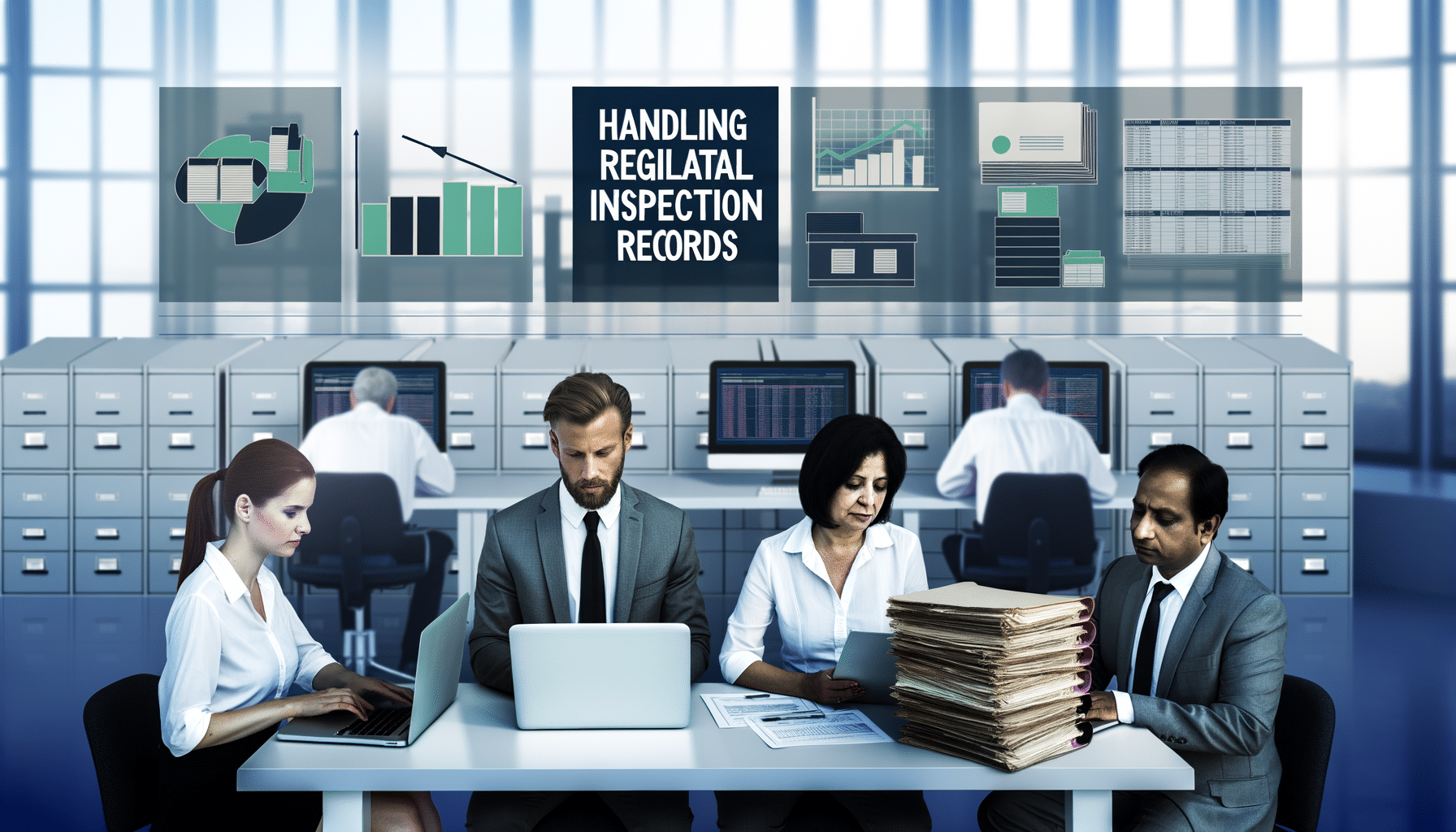- Blockchain Compliance
- November 16, 2024
Automated Workflow Approvals in Compliance Processes

In today’s fast-evolving regulatory landscape, I often find myself pondering how businesses can keep up with compliance requirements without drowning in paperwork. As someone who’s deeply entrenched in the world of AI and blockchain with RecordsKeeper.AI, I’m thrilled about the transformative potential of AI to streamline compliance processes. One area where AI particularly excels is in automating workflow approvals, a crucial facet of compliance.
Understanding the Compliance Challenge
In my years working alongside compliance heads, I’ve learned that manual approval processes can be a choking point. They drain valuable time and resources and are often prone to human error. With ever-increasing regulatory demands, legal, finance, and compliance teams are frantically searching for innovative solutions to alleviate these inefficiencies. This is where AI comes into play, offering a solution that not only improves speed but also enhances accuracy and reliability.
The Role of AI in Automating Workflow Approvals
The notion of AI in workflow automation might have seemed like the stuff of science fiction not too long ago, but today, it’s becoming a strategic advantage. AI imbues compliance workflows with the ability to:
1. Enhance Decision-Making: I’ve seen AI’s capability to analyse vast amounts of data, helping compliance officers make informed decisions based on accurate risk assessments. Machine learning algorithms can detect patterns and identify anomalies that might elude human eyes.
2. Improve Accuracy: In my experience, AI-driven workflows substantially reduce errors commonly associated with manual data entry and cross-verification processes. With blockchain integration, we can ensure data integrity by creating a tamper-proof record of each transaction, boosting trust and transparency.
3. Speed Up Processes: Automating approval workflows with AI eliminates bottlenecks, thus accelerating the decision-making process. Compliance teams can reallocate their time from routine approvals to strategic tasks that foster innovation and growth.
Benefits of AI-Driven Compliance Workflow Approvals
Delving into the specifics, here’s how AI can benefit compliance workflows practically:
Enhanced Resource Allocation: With AI assuming routine tasks, compliance teams can devote their refined focus to core activities, carving out more time for strategic initiatives.
Real-Life Example: One of our early adopters, a mid-sized financial firm, reaped significant time savings. The team reported a 40% reduction in time spent on manual approvals, allowing compliance officers to concentrate more on policy development and risk mitigation.
Risk Mitigation: Predictive analytics can foresee potential risks, allowing compliance teams to act proactively rather than reactively. AI’s data analysis capabilities can flag potential issues before they escalate, serving as an early-warning system.
Cost Efficiency: Automating routine tasks translates into valuable cost savings. By reducing the need for extensive teams dedicated solely to manual compliance processes, companies can better allocate their budgets towards innovation and expansion.
Ensuring Smooth Implementation
While the potential of AI is unquestionable, the transition itself must be strategic. Here are some steps I recommend for successfully embedding AI-driven workflow approvals:
1. Comprehensive Training and Change Management: Equip your team with the necessary skills and mindset to embrace AI. Regular workshops and training sessions can ease the transition and encourage team buy-in.
2. Pilot Programs: Before a full-scale roll-out, consider implementing AI in stages. A pilot program can help identify potential pitfalls and provide an opportunity to tweak processes before large-scale adoption.
3. Regular Audits and Feedback: AI systems thrive on data; thus, regular audits can ensure your workflow approvals remain accurate and efficient over time. Feedback from the compliance team is invaluable and can guide future enhancements.
Final Thoughts
It’s truly a compelling time for those at the helm of compliance operations. The convergence of AI and workflow automation is not just a trend but a paradigm shift. By adopting AI-driven workflow approvals, you’re not just staying compliant; you’re wielding compliance as a competitive edge, allowing your organization to innovate and grow seamlessly.
For businesses or departments aiming to modernize their compliance strategies, I invite you to explore the possibilities with RecordsKeeper.AI. With tools designed to streamline compliance workflows, our platform is ready to revolutionize how you manage approvals. Join me on this exciting journey and see your compliance operations transform into a streamlined powerhouse of efficiency.
Toshendra Sharma is the visionary founder and CEO of RecordsKeeper.AI, spearheading the fusion of AI and blockchain to redefine enterprise record management. With a groundbreaking approach to solving complex business challenges, Toshendra combines deep expertise in blockchain and artificial intelligence with an acute understanding of enterprise compliance and security needs.
Related Posts

Handling Regulatory Inspection Records
Managing documentation for regulatory compliance.
- January 3, 2025

Organizing External Auditor Access
Setting up secure access for external auditors.
- December 22, 2024
Archives
- January 2025
- December 2024
- November 2024
- October 2024
- September 2024
- August 2024
- July 2024
- June 2024
- May 2024
- April 2024
- March 2024
- February 2024
- January 2024
- December 2023
- November 2023
- October 2023
- September 2023
- August 2023
- July 2023
- June 2023
- May 2023
- April 2023
- March 2023
- February 2023
- January 2023
- December 2022
- November 2022
- October 2022
- September 2022
- March 2019
Want to get more content like this?
Signup to directly get this type of content to your inbox!!
Latest Post
Handling Regulatory Inspection Records
- January 3, 2025
Setting Up New Employee Record Access
- January 2, 2025
Organizing Client Meeting Documentation
- January 1, 2025
Managing Records for Shift Workers
- December 31, 2024





